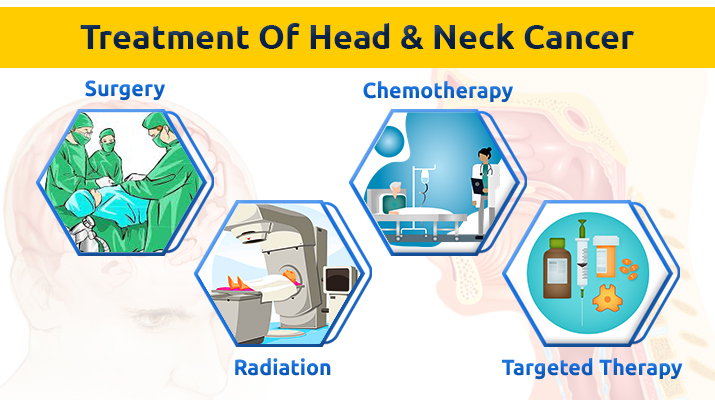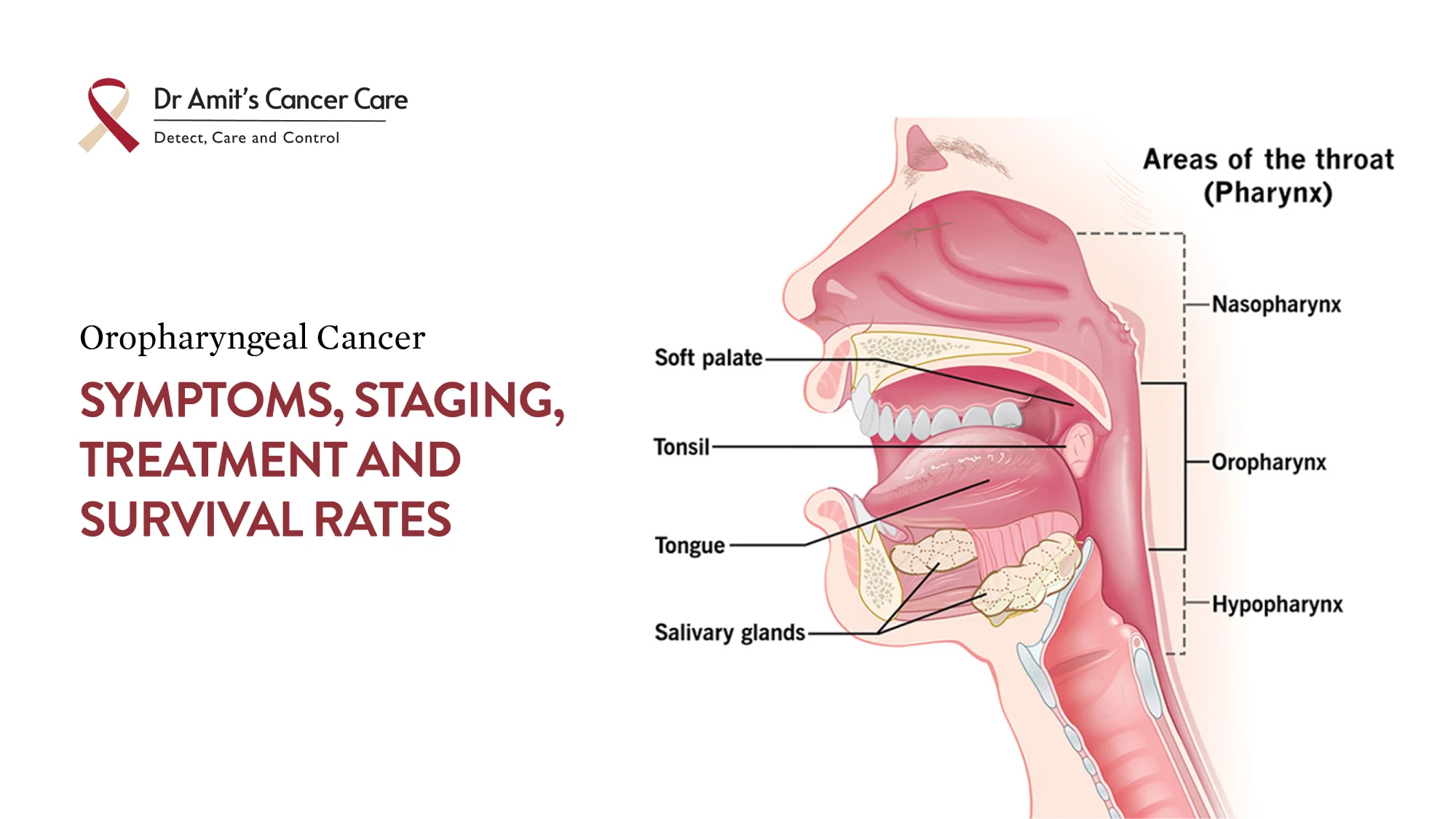Head and neck cancers are a complex group of cancers that arise in areas such as the mouth, throat, larynx, sinuses, and salivary glands. Each case of head and neck cancer can vary based on its location, stage, and specific diagnosis, making it crucial to explore all available treatment options. In this blog, we’ll explore the primary treatments for head and neck cancers, including surgery, radiation therapy, and chemotherapy, along with some newer treatment approaches. We’ll also highlight the expertise of Dr. Amit Cancer Care is renowned for having the best surgical oncologist in Dubai, Mumbai, and Nagpur.
Understanding Head and Neck Cancer
Head and neck cancers generally develop in the squamous cells that line the moist surfaces of these regions. These cancers can be aggressive, so early diagnosis and a tailored treatment plan are critical for improving survival rates and outcomes. Key factors such as the size of the tumor, its location, and whether the cancer has spread to nearby tissues or lymph nodes all influence the treatment strategy.
Key Treatment Modalities
The treatment plan for head and neck cancer may involve one or a combination of the following approaches:
1. Surgery
Surgery is often the first line of treatment for head and neck cancers, particularly when the tumor is localized and hasn’t spread. To remove the tumor and preserve as much normal tissue as possible, you need a qualified head and neck cancer surgeon.
There are several types of surgeries, depending on the location and extent of the cancer:
– Tumor resection: The removal of the cancerous tissue along with a margin of healthy tissue.
– Neck dissection: If cancer has spread to the lymph nodes, a neck dissection may be necessary to remove affected nodes.
– Reconstructive surgery: After the tumor is removed, reconstructive surgery may be needed to restore the appearance and function of the area.
With advancements in surgical techniques, many procedures can now be done minimally invasively, leading to faster recovery times and fewer complications. The top surgical oncologist in Mumbai, Nagpur, and Dubai at Dr. Amit Cancer Care is renowned for utilizing cutting-edge technology and personalized surgical techniques to optimize patient outcomes.
2. Radiation Therapy
High-energy radiation is used in radiation treatment to target and kill cancer cells.
It can be used as a primary treatment, especially for smaller tumors, or in conjunction with surgery or chemotherapy. This treatment is commonly applied when surgery is not feasible, or the patient’s health doesn’t allow for surgical intervention.
There are different types of radiation therapies:
– External beam radiation: This is the most common type, where the radiation is directed at the cancer from outside the body.
– Brachytherapy: This involves placing radioactive sources directly into or near the tumor. Brachytherapy is often used for specific types of head and neck cancers, such as those affecting the oral cavity or the salivary glands.
Radiation therapy may cause side effects such as fatigue, skin reactions, and difficulty swallowing. However, many of these side effects can be managed with supportive care from specialists at Dr. Amit Cancer Care, known for its compassionate approach and patient-centered care.
3. Chemotherapy
Chemotherapy uses drugs to kill cancer cells throughout the body and is often used in combination with radiation therapy, particularly for more advanced cancers or those that have spread. For head and neck cancers, chemotherapy is typically used:
– Neoadjuvant treatment is used prior to surgery in order to reduce big tumors.
– Adjuvant therapy following surgery in order to eradicate any cancer cells that may still be present.
– As a standalone treatment for cancers that are not suitable for surgery or radiation.
Common chemotherapy drugs for head and neck cancers include cisplatin, carboplatin, and 5-fluorouracil. Although chemotherapy can cause side effects such as nausea, hair loss, and an increased risk of infection, experienced oncologists can help manage these side effects effectively. Dr. Amit Cancer Care provides comprehensive support throughout the treatment process, ensuring patients receive the best possible care.
4. Targeted Therapy
Treatment for cancer can now be more individually tailored thanks to targeted medicines.
These drugs target specific proteins or genes that drive cancer growth, making the treatment more precise and less damaging to healthy cells. In head and neck cancers, one of the most commonly used targeted drugs is cetuximab, which targets the epidermal growth factor receptor (EGFR).
Targeted therapy can be used in conjunction with radiation or chemotherapy, and it is particularly beneficial for patients with advanced or recurrent cancers. Head and neck cancer specialists at Dr. Amit Cancer Care stay at the forefront of medical advancements to provide access to the latest targeted therapies.
5. Immunotherapy
In order to identify and eliminate cancer cells, immunotherapy strengthens the patient’s immune system. This treatment has shown promise in treating certain head and neck cancers, particularly those that are resistant to conventional treatments. Drugs like nivolumab and pembrolizumab are examples of immunotherapy agents used for advanced head and neck cancers.
Immunotherapy offers new hope for patients with recurrent or metastatic head and neck cancers, providing an additional option for those who may not benefit from surgery, radiation, or chemotherapy.
The Role of Multidisciplinary Care
A successful treatment plan for head and neck cancer requires a multidisciplinary team of experts, including surgeons, oncologists, radiation specialists, and nutritionists, to develop the best strategy for each patient. Dr. Amit Cancer Care stands out for its multidisciplinary approach, combining the expertise of head and neck cancer surgeons with state-of-the-art medical technologies to deliver optimal care.
Recovery and Rehabilitation
Post-treatment recovery for head and neck cancers can be challenging, as it often involves the sensitive areas of the face, neck, and throat. Speech therapy, physical therapy, and nutritional support may be necessary to regain function and improve quality of life after treatment. At Dr. Amit Cancer Care, patients receive comprehensive post-treatment support, including rehabilitation services designed to help them adjust to life after cancer.
Conclusion: Choosing the Right Care
The treatment of head and neck cancer is complex, and each patient’s journey is unique. It is essential to explore all available options with a team of experienced specialists who can tailor a treatment plan based on the cancer’s specific characteristics and the patient’s overall health. Whether you need chemotherapy, radiation, surgery, or more recent treatments like immunotherapy, Dr. Amit Cancer Care, led by the top surgical oncologist in Mumbai, Nagpur, and Dubai, offers expert care and a personalized approach to ensure the best possible outcomes.
If you or a loved one is facing a head and neck cancer diagnosis, seek out the guidance of a renowned head and neck cancer specialist to begin your journey to recovery with confidence.






